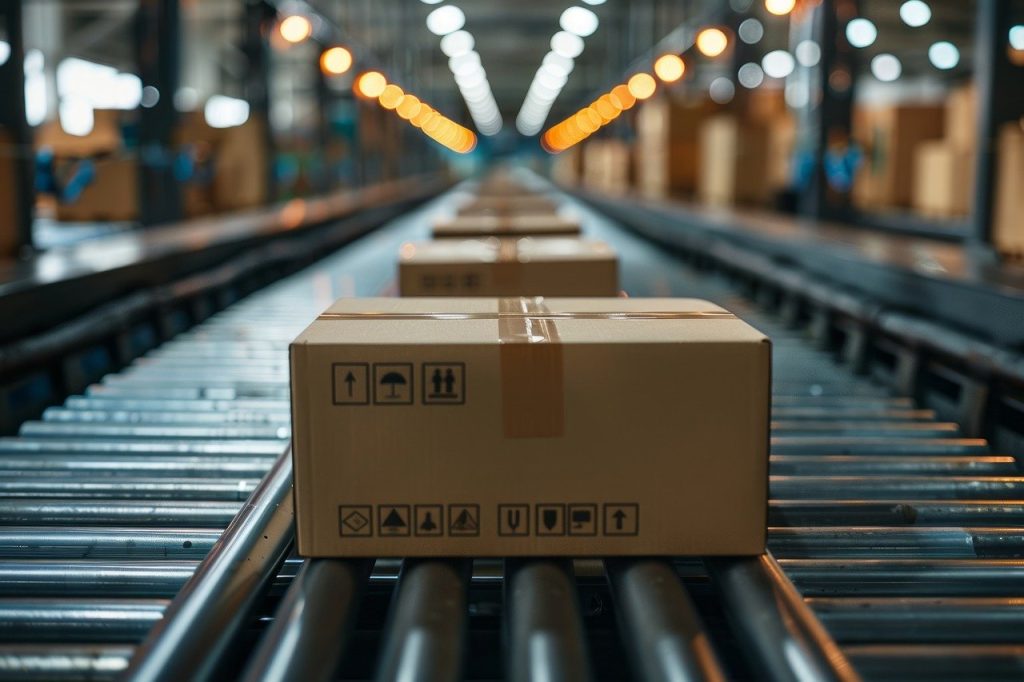Leveraging Tech Innovations in E-Commerce for Enhanced Sustainability Practices

In today’s rapidly evolving market, integrating sustainability into e-commerce is more than an ethical choice; it’s a strategic business goal. As the global e-commerce sector, projected to reach $6.3 trillion in sales this year, faces intense scrutiny regarding its environmental impact, more companies are pivoting towards green technology.
This shift is driven by three main factors: an increase in consumer demand for eco-friendly products, stringent regulatory pressures with impending regulations like the EU’s Digital Product Passport for sustainability compliance, and a heightened global environmental awareness post-2020 climate summits.
Therefore, let’s have a look at the most common tech innovations and practices businesses can use to stay competitive and meet both market expectations and regulatory requirements.
Tech Innovations for E-Commerce Sustainable Practices
1. Recycled Packaging
Unsustainable packaging practices typically involve the use of nonrenewable, nonbiodegradable materials, which contribute significantly to landfill waste and pollution.
For example, plastics—commonly used in packaging—can take up to 1,000 years to decompose, leading to severe soil and water contamination. Additionally, the production process for such materials often requires excessive amounts of energy and water, further exacerbating carbon emissions and depleting natural resources.
Fortunately, we can rely on tech innovations, like biodegradable packing peanuts and mushroom-based packaging materials that help reduce the use of plastics and enhance biodegradability. In addition to this, increased recycling capabilities and a whole new outlook on the packaging industry.
While there are some worries about increased expenses (recycled materials typically cost 10-20% more than virgin counterparts), the long-term savings in waste management and potential tax incentives make it economically viable.
The Challenging Aspects: Plastic-free packaging may not always be feasible.
Let’s take the example of a meal kit delivery service like Green Chef. The company’s main role is to make eating healthy, home-cooked meals more accessible to customers who may have time and/or dietary restrictions. For instance, a keto dieter can select varied options for keto meals, which makes it a lot easier to stay on track with the diet’s requirements.
For this to work, the company has to deliver fresh ingredients, which are individually packed. To maintain freshness during transport, each ingredient is wrapped in recyclable plastic, which is the most efficient for this purpose. But, even though the plastic is recyclable, it may not always be compatible with the customers’ collection system.
2. Carbon-Neutral Shipping Options
In the internet and social media era, it’s more important than ever to know how to keep your customers happy. One way many e-commerce companies manage to keep their customers satisfied is by offering speedy or even same-day delivery.
However, this means more vehicles on the road, which leads to an increased carbon footprint. To balance things, e-commerce and delivery companies switch to alternative fuels, such as biofuels or electricity.
According to the International Energy Agency, the switch from traditional diesel trucks to electric or hybrid models can reduce greenhouse gas emissions by up to 30% per shipment, which is quite a leap.
Additionally, many companies implement carbon offsetting practices through investments in renewable energy projects or reforestation programs.
The Challenging Aspects: The availability and cost of alternative fuels such as biofuels or electric vehicles can be prohibitive, especially for smaller enterprises or those operating in regions with limited infrastructure.
Also, accurately calculating a company’s carbon footprint to offset it effectively requires sophisticated data collection and analysis. Many businesses struggle with obtaining precise emissions data from their logistics operations, which is crucial for determining the amount of offset required.
3. Blockchain for Transparency
Blockchain technology ensures transparency and accountability in sustainable practices throughout the supply chain. This decentralized ledger records every transaction or movement of goods, making data tamper-proof and easily verifiable by all parties.
For instance, companies like Walmart use blockchain to trace the origin of produce from farm to shelf, verifying organic or fair-trade certifications directly.
This level of visibility is crucial for confirming that suppliers adhere to environmental and social standards. It effectively addresses issues such as “greenwashing,” where companies falsely claim sustainability.
The Challenging Aspects: Technological integration complexities cannot be underestimated. Integrating advanced technologies like blockchain into existing supply chains involves substantial changes in IT infrastructure and the training of staff to manage new systems effectively.
4. Renewable Energy Sources
E-commerce companies are increasingly tapping into renewable energy sources to power their operations, significantly reducing their carbon footprint and enhancing sustainability.
By installing solar panels on warehouse roofs, using wind power for data centers, and purchasing green energy credits, these firms make substantial strides toward energy independence from non-renewable sources.
For example, Amazon has launched numerous solar farms and wind projects worldwide as part of its commitment to reach 100% renewable energy by 2025. This initiative alone is projected to generate millions of megawatt-hours of clean energy annually.
The Challenging Aspects: The initial cost stands out. Setting up sustainable systems often requires significant upfront investment. For example, installing renewable energy systems like solar panels can be costly compared to traditional methods.
Wrap Up
Technologies like recycled packaging, carbon-neutral shipping, blockchain transparency, and renewable energy utilization not only help reduce the environmental impact of business operations but also boost market competitiveness.
As these tech-driven initiatives become more streamlined and cost-effective, their adoption will likely surge, setting new industry benchmarks for sustainability. This technological vanguard signals a transformative era where eco-friendly practices are seamlessly integrated into business models, driving both ecological preservation and economic vitality.